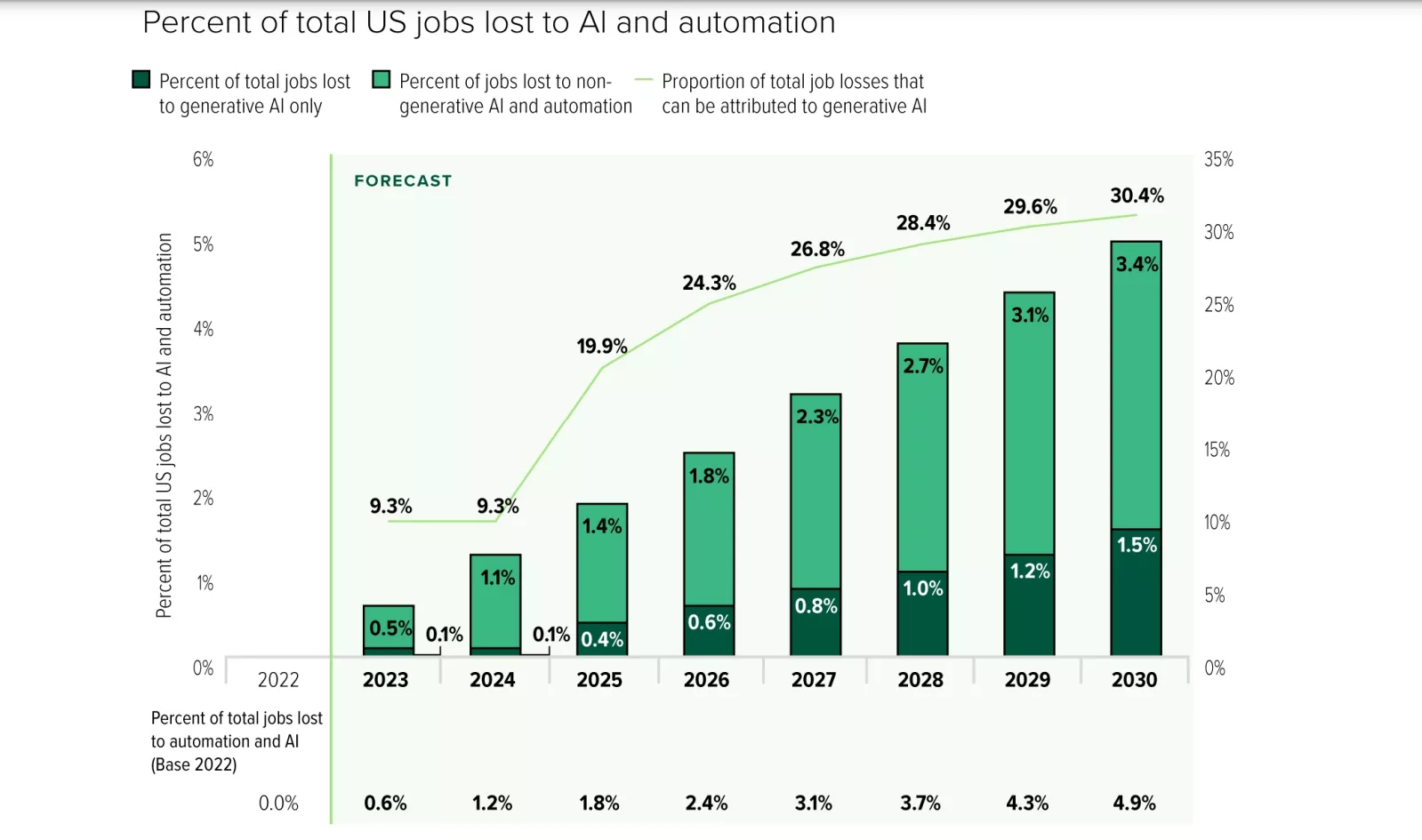A hot potato: Despite the recent reports that generative AI will create as many jobs as it kills off, or it will augment most positions rather than replace them, there are still plenty of incidents where the technology is putting humans out of work. The latest of these involves language-learning software maker Duolingo, which has laid off 10% of its contractors as a result of AI.
A Duolingo spokesperson said about 10% of its contractors were “offboarded.” As reported by Bloomberg, they explained, “We just no longer need as many people to do the type of work some of these contractors were doing. Part of that could be attributed to AI.”
Chief Executive Officer Luis von Ahn praised the benefits of generative AI in a letter to shareholders late last year, noting that it allowed the company to produce new content, such as scripts for shows that help teach languages, much faster.
Duolingo also uses AI-generated voices in its app, as well as AI features for customers. The company’s $30 per month Duolingo Max plan that launched in 2023 comes with access to a pair of GPT-4-powered features: one for explaining why the answer to a question is right or wrong; the other that lets users practice their language skills in multiple scenarios, with no two conversations being exactly the same.
The spokesperson said that the cuts aren’t a case of AI being a “straight replacement” for the workers and that no full-time employees have been affected by the reductions. They added that many Duolingo staff and contractors use AI as part of their jobs.
Duolingo is obviously trying to play down AI’s role in the job cuts, but it isn’t the first company to remove human workers in favor of the technology. A Chinese firm said it would replace all its external copywriters and graphic designers with generative AI models last year. IBM said it intended to stop hiring for jobs that could be performed by generative artificial intelligence (but not programmers, apparently). And a CEO in India replaced 90% of his support staff with a chatbot.
A study in March found that generative AIs could impact 300 million jobs worldwide, and it is expected to replace over 2 million jobs in the US by 2030. Some executives are so worried about its impact that they are turning to drink and drugs.


